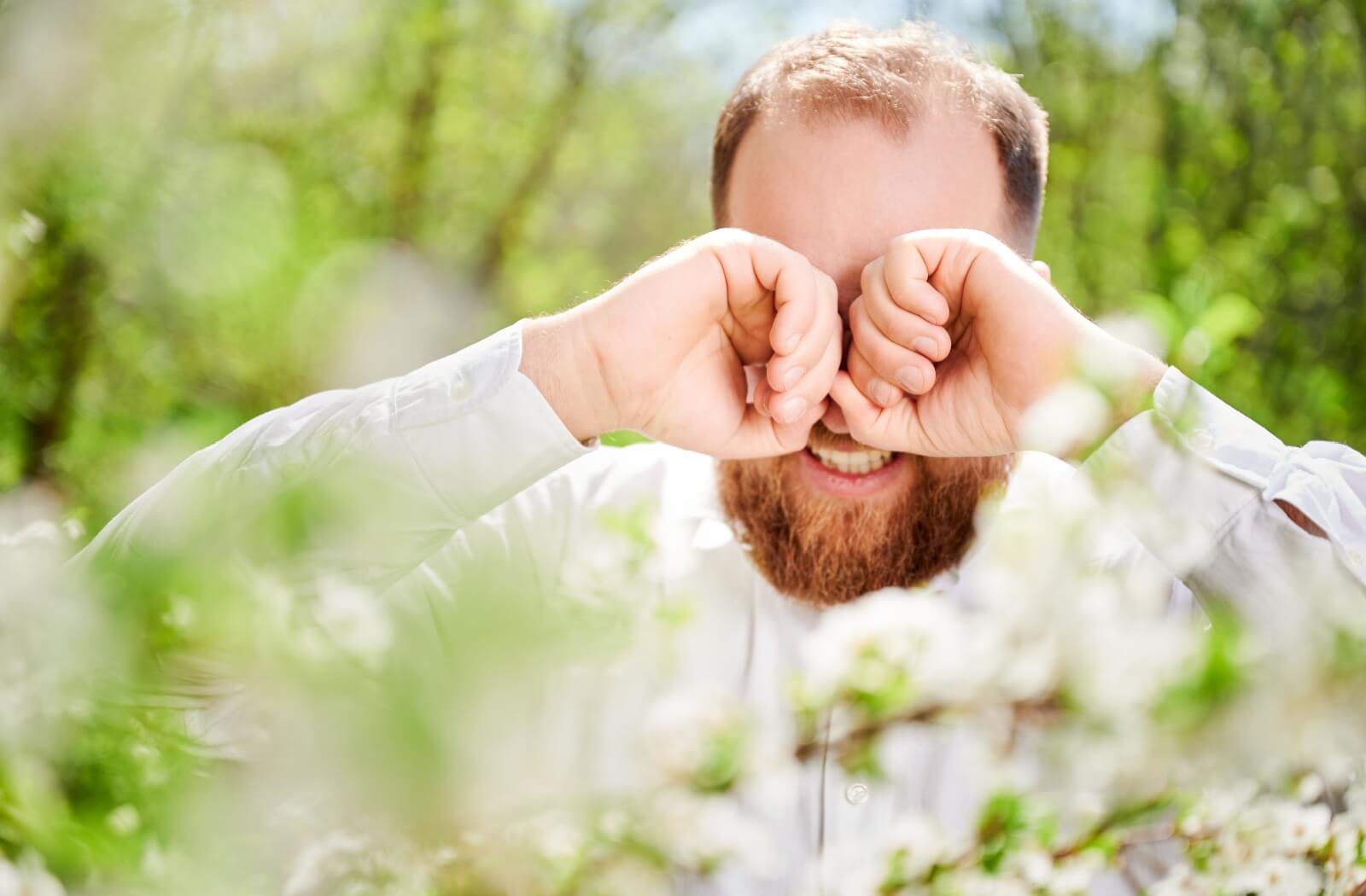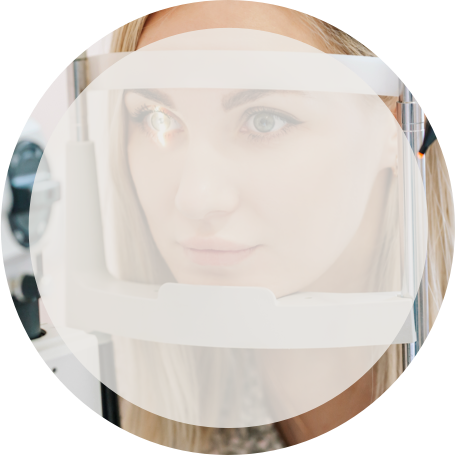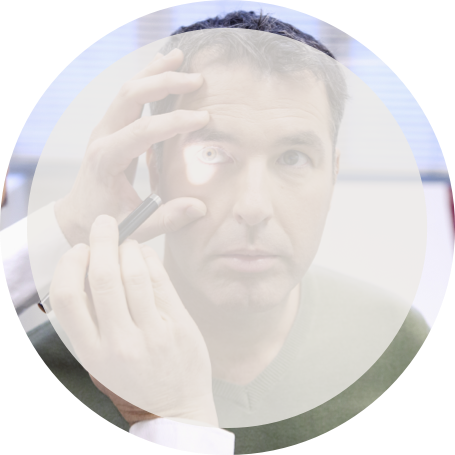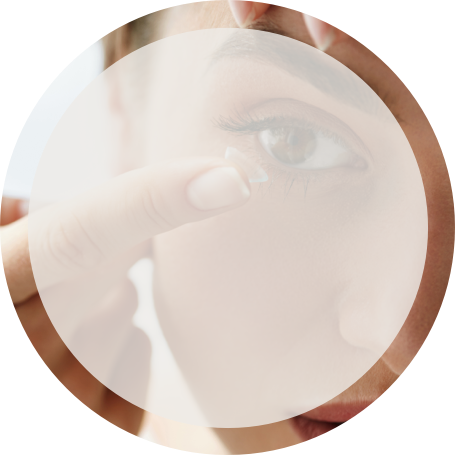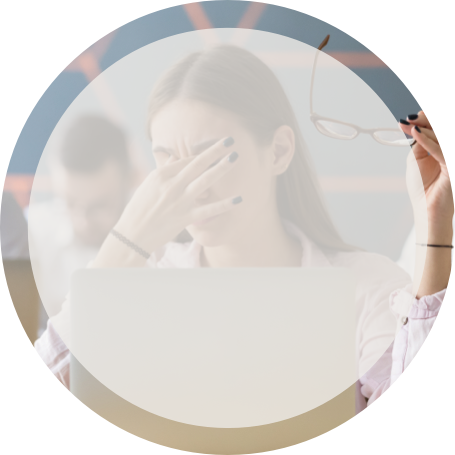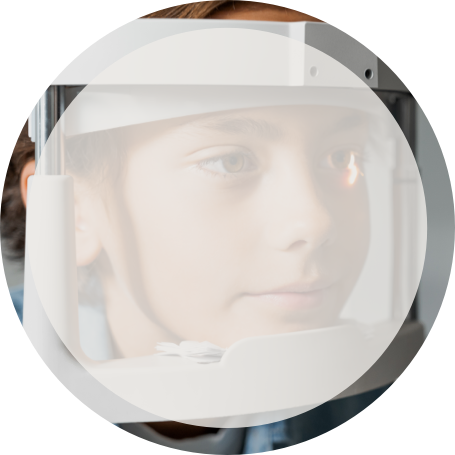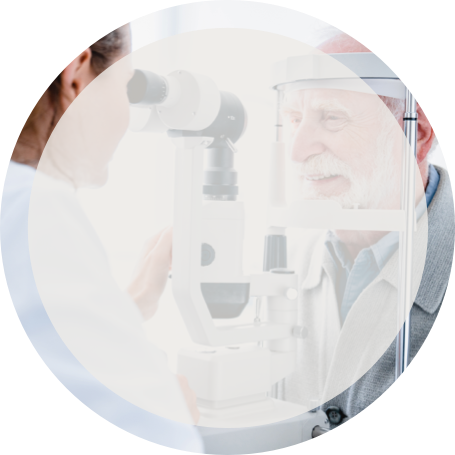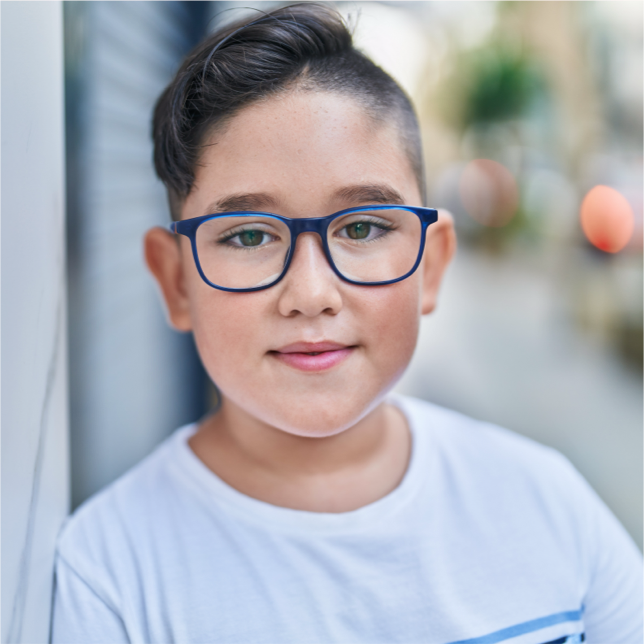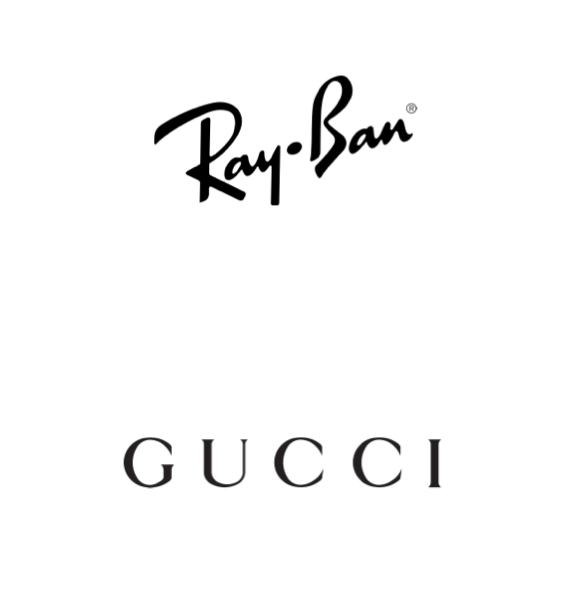Itchy, watery, or irritated eyes during allergy season can be more than just a nuisance—they might also be a sign of dry eye. If you’re experiencing allergy-related eye irritation, a thoughtful and personalized approach to diagnosis and treatment can help bring relief and protect your long-term eye health.
Today’s dry eye treatments go far beyond over-the-counter eye drops. Options like Intense Pulsed Light (IPL) therapy, LipiFlow® thermal pulsation, amniotic membrane therapy, and Low-Level Light Therapy (LLLT) offer more effective ways to manage the root causes of dry eye—especially when allergies are involved.
What Is Dry Eye?
Dry eye disease occurs when your eyes don’t produce enough tears or when those tears evaporate too quickly. This imbalance can lead to dryness, irritation, burning, and sometimes even excessive tearing as your eyes try to compensate for their own lack of moisture.
Your tear film is made up of three layers: water, oil, and mucus. Each layer plays a role in keeping the eyes hydrated and protected. When one layer becomes unstable—such as the oily layer from blocked meibomian glands—dry eye symptoms can follow.
Symptoms of dry eye may include:
- Blurry or fluctuating vision
- A scratchy, gritty feeling
- Redness or irritation
- Sensitivity to light
- Eye fatigue, especially with screen use
- Excessive tearing triggered by dryness
While aging, digital device use, and certain medications can cause dry eye, environmental allergies are a common and sometimes overlooked factor.
Understanding Allergies & Dry Eyes
Seasonal and environmental allergies can significantly affect the surface of the eyes. In addition to allergens themselves, oral antihistamines commonly used to manage allergy symptoms can have side effects that contribute to dry eye. This means patients may experience even more dryness during allergy season if they are taking allergy medications.
This immune response doesn’t just cause discomfort—it can also impact the delicate tear film that protects your eyes. A compromised tear film can lead to:
- Faster evaporation of tears
- Irritation of the eye’s surface
- Inflammation around the meibomian glands, which help produce the oil layer in your tears
Common Triggers For Allergy-Related Dry Eye
When the meibomian glands become blocked or inflamed, your ocular surface loses the oils that help prevent tears from evaporating. That’s why people with allergy-triggered eye symptoms may also experience signs of dry eye.
Triggers for allergy-related eye irritation include:
- Tree and grass pollen during spring and summer
- Weed pollen in the fall
- Indoor allergens like pet dander and dust
- Chemical or fragrance exposure
- Airborne pollutants
In short, the same factors that cause your eyes to itch and water may also contribute to lingering dryness and discomfort.

Diagnosis & Treatment of Allergy-Related Dry Eye
Because the symptoms of allergies and dry eye often overlap, an eye exam is a crucial first step. Identifying the source of your irritation allows us to build a care plan that works for you.
Diagnostic tools like LipiView® imaging provide a closer look at tear quality and meibomian gland function. We may also use tear break-up tests or ocular surface dye to assess dryness and inflammation.
Once your symptoms are properly diagnosed, you can work with us to choose the best course of treatment based on your lifestyle, environment, and the severity of your condition.
In-Office Treatment Options
Several in-office therapies can help restore balance to your tear film, relieve irritation, and address the underlying causes of dry eye:
- LipiFlow® Thermal Pulsation: This treatment applies gentle heat and pressure to the eyelids, helping to clear blocked meibomian glands and improve the flow of natural oils to the tear film.
- Intense Pulsed Light (IPL): IPL uses pulses of light energy to reduce inflammation and improve skin and gland health around the eyes, especially for those with rosacea or inflammation-driven dryness.
- Low-Level Light Therapy (LLLT): This noninvasive therapy uses LED light to promote healing and improve gland function while reducing inflammation.
- Amniotic Membrane Therapy: For those with more persistent or severe symptoms, this biologic treatment supports tissue regeneration and helps repair damage to the surface of the eye.
At-Home Treatment Options
Your optometrist may also recommend at-home strategies such as:
- Lubricating eye drops or ointments
- Warm compresses and lid hygiene routines
- Allergy-specific eye drops or oral medications
- Hydration and omega-3 supplements
When combined, these therapies can reduce inflammation, improve tear quality, and ease irritation from both allergies and dry eye.
Prevention of Allergy-Related Dry Eye
Reducing your exposure to allergens is one of the best ways to prevent dry eye flare-ups, especially during peak allergy seasons. Even small changes to your environment or routine can make a noticeable difference in your comfort.
Try the following tips to minimize allergy-related eye symptoms:
- Monitor pollen levels and limit outdoor activity during high-count days
- Keep windows closed and use high-quality air filters indoors
- Shower and change clothes after spending time outside to remove allergens
- Avoid rubbing your eyes, which can worsen inflammation and dryness
- Use preservative-free artificial tears to flush out irritants and soothe the eyes
- Clean bedding and soft surfaces regularly to reduce indoor allergens
- Wear sunglasses or wraparound eyewear when outdoors to shield your eyes from pollen and wind
If you wear contact lenses, daily disposables may reduce the buildup of allergens on the lens surface. We can also help you find the right lens material or switch you to a more suitable option during allergy season.
Manage & Prevent Dry Eye at Family Vision Care
Allergies and dry eyes often go hand in hand—but you don’t have to settle for irritation and discomfort. With a clear diagnosis and a personalized care plan, you can find relief that lasts beyond the allergy season.
Family Vision Care offers complete dry eye evaluations and a full range of in-office treatments, including IPL, LipiFlow, LLLT, and amniotic membrane therapy. With locations in Cranberry, Baden, Wexford,and Mt. Oliver, we’re here to support your eye comfort and health year-round.
Book an appointment today and take the first step toward lasting relief.

